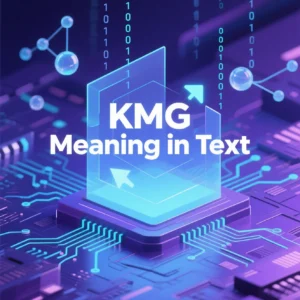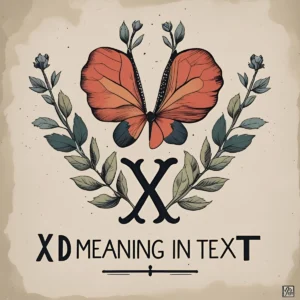In today’s fast-paced digital world, texting has become a universal language.
Whether you’re chatting with friends, posting on social media, or gaming online, shortcuts and acronyms like “GTG” are everywhere.
But what does GTG actually mean? And why is it so important to understand this little acronym?
GTG stands for “Got To Go” and is commonly used to signal that someone needs to leave a conversation or end an activity.
It’s a quick, polite way to say goodbye without typing out a full sentence.
Whether you’re in a hurry, wrapping up a gaming session, or just done with a chat, GTG is your go-to phrase.
Understanding GTG is crucial because it’s used in texting, social media, gaming, and even professional settings. Misinterpreting it could lead to awkward moments or missed cues. So, let’s dive into the world of GTG and explore its meaning, history, and usage in different contexts.
What Does GTG Mean?
GTG is an acronym for “Got To Go.” It’s a casual way to let someone know you need to leave or end a conversation. Think of it as the digital equivalent of saying, “I’ve got to run!”
Real-Life Examples of GTG
Here’s how GTG might pop up in everyday conversations:
- Texting:
Friend 1: “Hey, want to grab dinner later?”
Friend 2: “Sounds great, but GTG now. Talk soon!” - Gaming:
Player 1: “One more round?”
Player 2: “GTG, my mom’s calling me for dinner. Catch you tomorrow!” - Work Chat:
Colleague 1: “Can we finish this report by 5?”
Colleague 2: “GTG to a meeting, but I’ll get back to it after.”
As you can see, GTG is versatile and fits seamlessly into various situations.
The Origins and Evolution of GTG
The use of acronyms like GTG dates back to the early days of internet chat rooms and instant messaging in the late 1990s and early 2000s. Back then, typing quickly was essential, and abbreviations saved time.
Over the years, GTG has evolved from a niche internet slang term to a mainstream expression. Today, it’s used across texting apps, social media platforms, and online gaming communities. Its simplicity and universality have made it a staple in digital communication.
How GTG Is Used in Different Contexts
Texting and Social Media
In casual conversations, GTG is a quick way to exit a chat. For example:
“GTG, my phone’s about to die. Talk later!”
Gaming
Gamers often use GTG to let teammates know they’re leaving the game:
“GTG, guys. Dinner’s ready. Good game!”
Professional Settings
While GTG is mostly casual, it can be used in informal work chats:
“GTG to a client call. Let’s sync up after.”
Common Misconceptions About GTG
Some people confuse GTG with other acronyms like G2G (which means the same thing) or GG (which stands for “Good Game”). While they sound similar, their meanings are different.
Another misconception is that GTG is rude. In reality, it’s a polite and efficient way to end a conversation. However, tone matters. Sending “GTG” without context might come off as abrupt.
Similar Terms and Alternatives
Here’s a quick comparison of GTG and similar phrases:
| Term | Meaning | Usage |
| GTG | Got To Go | Casual, quick exit |
| G2G | Got To Go | Same as GTG |
| BRB | Be Right Back | Temporary leave |
| TTYL | Talk To You Later | Ending a conversation |
How to Respond to GTG
Your response to GTG depends on the context:
- Casual: “No worries, catch you later!”
- Funny: “GTG? But we were just getting started! 😂”
- Professional: “Understood. Let’s reconnect tomorrow.”
Regional and Cultural Differences
GTG is widely understood in English-speaking countries. However, non-English speakers might use their own versions. For example, in Spanish, people might say “Tengo que irme” (I have to go).
GTG in Online Communities and Dating Apps
On platforms like Tinder or Twitter, GTG is often used to end conversations quickly. For example:
“This was fun, but GTG. Let’s chat again soon!”
Is GTG Offensive or Inappropriate?
GTG is generally harmless, but tone and context matter. Using it abruptly might seem rude. Always pair it with a friendly note to keep the conversation positive.
Is GTG Suitable for Professional Communication?
While GTG is casual, it can work in informal work chats. For formal settings, opt for alternatives like “I need to step away” or “Let’s continue this later.”
FAQs
- What does GTG stand for?
GTG stands for “Got To Go.” - Is GTG rude?
Not usually, but it can seem abrupt without context. - Can I use GTG at work?
In informal settings, yes. For formal communication, choose a more professional phrase. - What’s the difference between GTG and G2G?
They mean the same thing; G2G is just a variation. - How do I respond to GTG?
A simple “No problem, talk later!” works well.
Conclusion
GTG is a handy acronym that simplifies digital communication. Whether you’re texting, gaming, or chatting on social media, it’s a quick way to say goodbye. By understanding its meaning, history, and usage, you can navigate conversations with ease and avoid misunderstandings. So next time you’re in a hurry, just type GTG and go!



Pingback: DWBI Meaning in Text: Decoding Internet Slang
Pingback: TMP Meaning in Text: A Complete Guide to Understanding and Using It TMP Meaning in Text
Pingback: FN Meaning in Text: Everything You Need to Know
Pingback: GTB Meaning in Text: A Complete Guide to Understanding and Using It (Updated)
Pingback: 'Ight' Meaning in Text: A Complete Guide to Understanding and Using It (Updated) 'Ight' Meaning in Text
Pingback: "fr" Meaning in Text: A Complete Guide (Latest Update)
Pingback: STSU Meaning in Text: A Complete Guide (Latest Update)
Pingback: CYA Meaning in Text: A Complete Guide to This Common Slang
Pingback: GNG Meaning in Text: A Complete Guide to Understanding and Using It
Pingback: TSTS Meaning in Text: The Real Definition & How to Use It
Pingback: EMP Meaning in Text: The Real Definition & How to Use It from a Girl
Pingback: BTS Meaning in Text: The Ultimate Guide to This Popular Acronym
Pingback: SS Meaning in Text: The Complete Guide to This Versatile Abbreviation
Pingback: CFS Meaning in Text: A Complete Comprehensive Guide (Latest Update)